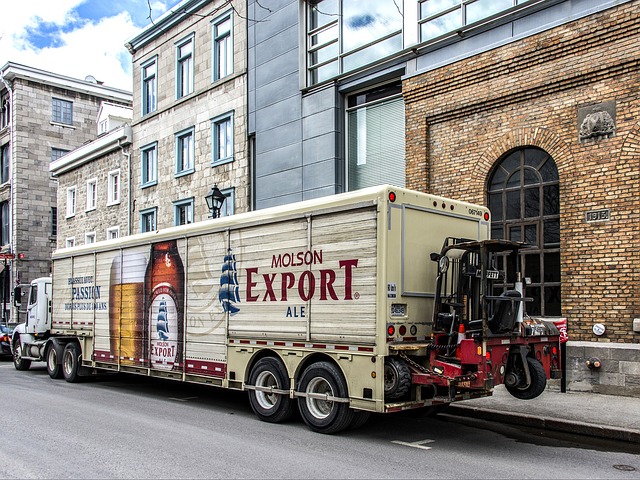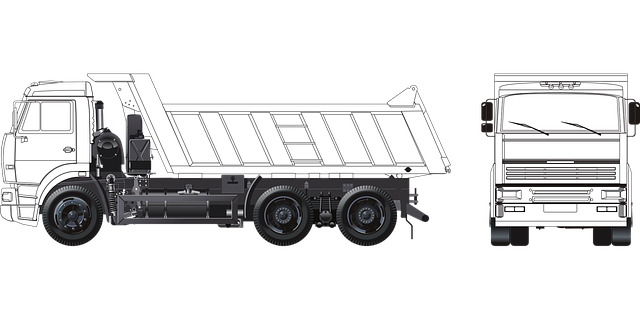Commercial box truck insurance is specialized coverage for businesses owning and operating cargo carriers, addressing unique risks like accidents, vehicle damage, and cargo loss. Key factors influencing premium rates include vehicle age, condition, cargo type, driving history, and usage patterns. Owners have various policy options covering liability, physical damage, and cargo protection, with tailored plans for small to large trucks. Shopping for the best coverage involves understanding business needs, comparing quotes from multiple insurers, and examining deductibles, limits, and perks like roadside assistance.
“Navigating the world of commercial box truck insurance is essential for businesses relying on these versatile vehicles. This comprehensive guide explores the intricacies of protecting your fleet, offering insights into what coverage options are available and how to choose the best fit. From understanding the scope of potential risks to discovering policy types tailored for small and large box trucks, this article equips readers with knowledge to make informed decisions in the dynamic market of commercial trucking insurance.”
- Understanding Commercial Box Truck Insurance: What It Covers
- Factors Influencing Box Truck Insurance Rates
- Types of Box Truck Insurance Policies
- Tips for Obtaining the Best Coverage for Your Fleet
Understanding Commercial Box Truck Insurance: What It Covers

Commercial box truck insurance is tailored to protect businesses operating large or small cargo carriers. Unlike personal vehicle insurance, this coverage recognizes the unique risks associated with commercial trucks, including liability for on-the-road accidents, damage to the vehicle, and cargo loss or damage during transport.
Key components of a comprehensive commercial box truck insurance policy include physical damage coverage, which protects against losses from collisions or other incidents, and liability coverage, which shields against claims resulting from accidents causing property damage or personal injury. Many policies also offer optional endorsements for specific risks, such as cargo protection against theft, weather damage, or loading/unloading mishaps.
Factors Influencing Box Truck Insurance Rates

Several key factors significantly influence commercial box truck insurance rates, making it essential for owners and operators to understand these variables. The primary considerations include the vehicle’s age and condition; older trucks or those with historical maintenance issues may command higher premiums. Additionally, the type of cargo being transported plays a role; certain goods, particularly hazardous materials, necessitate specialized coverage, impacting overall costs.
Driving history and experience also factor in prominently. Drivers with clean records and safe driving habits typically enjoy lower insurance rates compared to those involved in previous accidents or infractions. Furthermore, usage patterns matter; commercial box trucks used for long-haul or high-mileage operations usually incur higher insurance costs due to increased exposure and potential risk.
Types of Box Truck Insurance Policies

Commercial box truck owners have various insurance policy options tailored to their specific needs and business requirements. The types of box truck insurance policies typically cover liability, physical damage, and cargo protection. Liability coverage protects against claims arising from accidents or property damage caused to others during operations, while physical damage insurance compensates for losses to the truck itself due to events like collisions or natural disasters.
Cargo insurance is a crucial component, especially for businesses transporting valuable goods. It safeguards against theft, loss, or damage to cargo, providing financial protection for the items being carried. The right policy balance ensures that small and large box trucks are adequately insured, offering peace of mind and financial security for business owners navigating the complexities of commercial transportation.
Tips for Obtaining the Best Coverage for Your Fleet

When seeking the best commercial box truck insurance, several strategic tips can help ensure optimal coverage for your fleet. Firstly, understand your specific needs. Different types of trucks and businesses have varying risk profiles, so tailor your policy to match. For instance, if you operate in dense urban areas, comprehensive coverage may be more suitable than liability-only due to the higher chance of accidents and property damage.
Secondly, compare quotes from multiple insurers. Don’t settle for the first offer; explore options widely. Each provider has unique policies and pricing structures. Consider factors like deductibles, coverage limits, and additional perks like roadside assistance or cargo protection. This comparison will help you secure a policy that offers excellent value for your investment in commercial box truck insurance.
Commercial box truck insurance is a vital component of managing your fleet, ensuring protection against potential risks and liabilities. By understanding the coverage options, factors influencing rates, and tips for obtaining the best policy, business owners can make informed decisions to safeguard their investments. Whether you operate small or large box trucks, navigating the insurance landscape is essential to maintain a robust and protected fleet.
